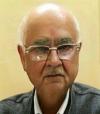What Causes Diarrhea And Abdominal Pain When Diagnosed With Carcinoid Tumors?

 Tue, 19 Sep 2017
Answered on
Tue, 19 Sep 2017
Answered on
 Thu, 12 Oct 2017
Last reviewed on
Thu, 12 Oct 2017
Last reviewed on
Most likely a separate problem termed as the Irritable Bowel.
Detailed Answer:
Hello Dear,
Thanks for choosing HealthcareMagic for your query.
I've gone through your details and I appreciate your concerns.
Most likely you are suffering from irritable bowel syndrome with overlapping problems.Carcinoid diabetes etc increases the intensity of this problem. Actually, IBS is not a disease rather its a collection or clustering of symptoms of the gut and when despite all possible investigations we can't find any anatomical or structural problem we label the problem as functional and all symptoms are clustered under a name IBS.
Firstly small briefing for Irritable bowel syndrome and why every patient is a unique case when we deal with IBS.
Recent studies by French scientists have indicated that the most important mechanisms include visceral sensitivity, abnormal gut motility, and autonomous nervous system dysfunction. The interactions between these three mechanisms make bowel's function susceptible to many exogenous and endogenous factors like gastrointestinal flora, feeding, and psychosocial factors.
Some patients have symptoms of unformed stools some have bloating and some may have severe constipation. Some patients have occasional symptoms whereas others may have symptoms for a long period of time.So as seen above every patient is different. Intensity of symptoms in every patient is different as so is the response to medicines and life style change. A patient may respond good to one medication while other patient is totally unresponsive to the same.
Have you ever had a colonoscopy done? After the age of 50, it is recommended that all individuals should have a colonoscopy every 5-10 years. Even if you have had this test in the last 5 years it might be recommended to repeat it.
All symptoms can be interrelated to each other.
Due to loose motions, a large amount of fluid is lost along with electrolytes which causes nausea cramps fatigue lassitude.Most of the minerals and vitamins are absorbed by intestines.In IBS due to poor absorption and digestion body becomes deficient in vitamins and essential minerals causing a number of problems like rough skin, broken nails. Dehydration and electrolyte imbalance causes palpitations.
So, initially, I'd suggest going for a colonoscopy if it turns up to be normal then you may have IBS and treatment would be started on protocol.
Treatment would be:
Dicyclomine is an anticholinergic drug. An anticholinergic agent is a substance that blocks the neurotransmitter acetylcholine in the central and the peripheral nervous system. Anticholinergics inhibit parasympathetic nerve impulses by selectively blocking the binding of the neurotransmitter acetylcholine to its receptor in nerve cells.
Mebeverine is an antispasmodic medicine and is very useful in IBS and is well tolerated by the patient with minimal side effects. Mebeverine works on certain muscles in the wall of your intestines, causing them to relax.
Clidinium bromide is an anticholinergic which may help symptoms of frequent stools.
Along with it, plenty of fluids and juices has to be taken.
Please discuss all these with your doctor.
Hope I explained to you things in detail. Let me know if I can assist you further.
Thank you!
Answered by

Get personalised answers from verified doctor in minutes across 80+ specialties



